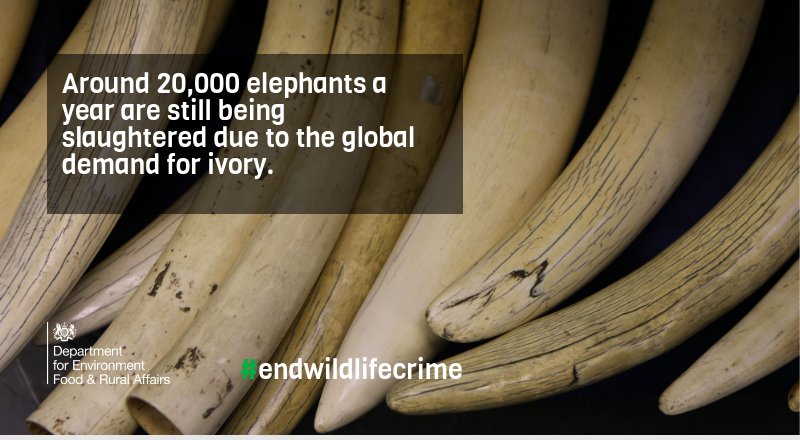The pictures are grisly. A black rhino lies slumped, its head a mass of blood and gore. A rotting elephant carcass is hunched in the savannah, torn and ripped by scavengers.
#ICYMI @BrentStirton named #WPY53 Wildlife Photographer of the Year for the powerful Memorial to a species. #rhino #photography @NHM_WPY pic.twitter.com/qM1fmF0scf
— NHM Images (@NHM_Images) November 1, 2017
What do such horrific images have to do with Vienna?
Vienna is the home of the UN Office on Drugs and Crime, the UNODC – the United Nations agency charged with fighting corruption and transnational organised crime. Both play a central role in the illegal wildlife trade which threatens species, communities and ecosystems world-wide.
So what can we do about it?
One of the keys to tackling illegal wildlife trade, known as IWT, is building up the international will to work together. The UK sought to turbo-charge this process with a conference in London in 2014, followed by meetings in Kasane, Hanoi and now London again in October 2018.
The focus is on four “pillars”: eradicating the market for illegal wildlife (eg ivory or rhino tusks); building effective legal frameworks; strengthening law enforcement; and, vitally, supporting sustainable livelihoods and economic development.
UNODC, as the guardian of both the UN Convention on Anti-Corruption (UNCAC) and the UN Convention on Transnational Organised Crime (UNTOC), is a natural partner of choice to support implementation of the 2nd (legal framework) and 3rd (law enforcement) pillars.
That is why, on November 6, the UK hosted an event at the UN’s set piece conference on anti-corruption, drawing attention to the links between IWT and corruption.
That is why the UK financially supports UNODC’s IWT research programme, work that led to the UN publishing its first Wildlife Crime Report, released in 2016.
We look forward to the London IWT Conference on 11-12 October 2018. We will continue to explore ways to use the United Nations institutions, including here in Vienna, to combat the International Wildlife Trade worldwide – and keep endangered species safe.

